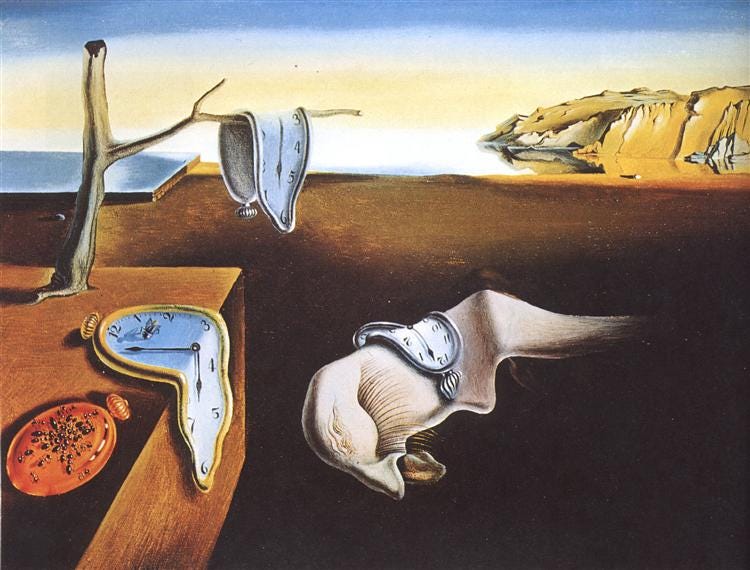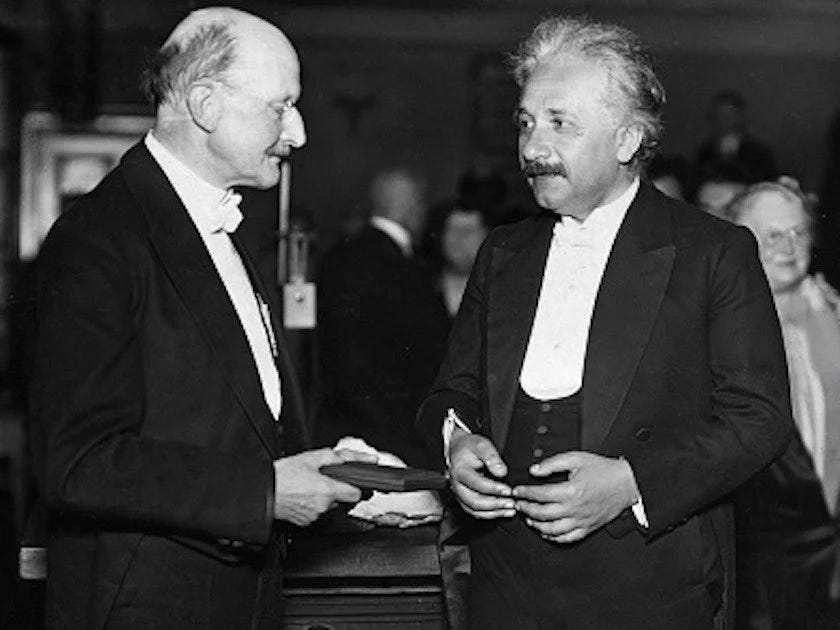Time: One of the most important debates in history
For Bergson, time does not progress in a linear fashion, it spreads out like ink stains on cloth
The French philosopher, Henri Bergson is an incredibly underappreciated thinker. In the early twentieth century, Bergson and Einstein engaged in a debate regarding the nature of time. Einstein’s theory of time posited a mechanical time, a time detached from human affairs that could be presented through a mathematical formula. Bergson termed this ‘clock time’. Clock time progresses in a continuous, consistent manner, it is a time that can be divided into chunks of space, as on the face of a clock.
For Bergson this was incomplete. This detached form of time is not how humans experience time’s passage. In works such as ‘Time and Free Will’ (Essai sur les données immédiates de la conscience), Bergson posited a form of time called ‘duration’ (la durée). Duration describes time through the lens of subjective human experience as opposed to mathematical theory.
Everyone experiences time differently from event to event, moment to moment, place to place. This form of time eludes mathematical theory. It is more organic, the time of Nature if you will.
For Bergson, time does not progress in a linear fashion, it spreads out like ink stains on cloth. This is one of the metaphors he uses in ‘Time and Free Will’.
So our perception of time can change depending on our context. I remember listening to a clip of the ex-Special Forces soldier, Ant Middleton, talking about combat situations. He described how time extends, how when you are engaged in a firefight it can feel as if a whole eternity is passing.
This isn’t illogical, you could definitely analyse this process from a neurological perspective. In states of heightened awareness – during life-threatening, dangerous events for instance – the mind’s perception expands. During the same period of clock time, the mind is perceiving relatively greater inputs so more information is consumed. This distorts one’s perception of time. If more information is being registered by the mind, if more events are crammed into time, the duration feels greater. This is what Bergson’s getting at.
The general consensus regarding the debate between Bergson and Einstein was that Einstein ‘won’. From a contemporary cultural and social perspective this also seems the case. Few know of Bergson’s work, yet everyone appreciates Einstein’s greatness in some form or another.
I think this is a shame. Not because Einstein is appreciated, of course, but because Bergson is lesser-known. Nobody ‘won’ the debate. The pair were talking about different phenomena.
Bergson’s theory of time is one of experience, subjectivity and presentness. We are all closer to Bergson’s theory of time than Einstein’s because we experience it every day. Bergson’s theory is not scientific, it is lived.
It is perhaps for this reason that in 1927 Henri Bergson won the Nobel Prize for Literature. His descriptions of time induce a trance-like state in the reader, simultaneously describing and proving his theory.
One day I would love to go through Bergson’s ‘Time and Free Will’ on this blog, both to uncover it anew myself and to make it more accessible to others.




I tripped one day and I felt myself falling forward and the fall in my mind seemed to happen very slowly.
Noted. I'm not 100% well too at this moment but i'll try my best to be there before or on Christmas. Take care & no worries 🙂